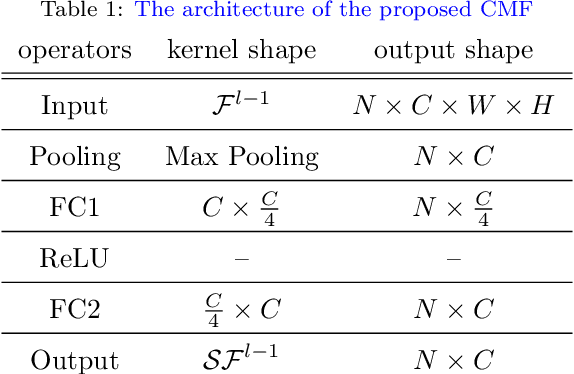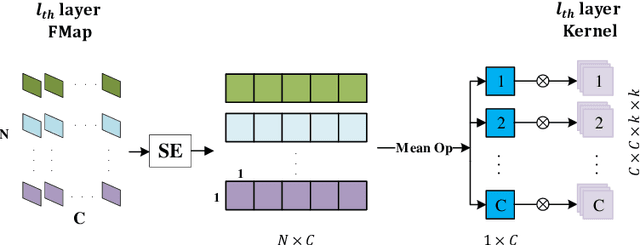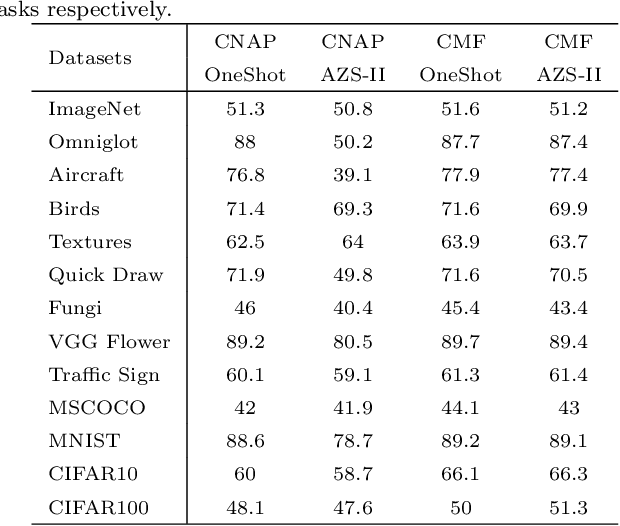Canonical Mean Filter for Almost Zero-Shot Multi-Task classification
Paper and Code
Apr 08, 2022



The support set is a key to providing conditional prior for fast adaption of the model in few-shot tasks. But the strict form of support set makes its construction actually difficult in practical application. Motivated by ANIL, we rethink the role of adaption in the feature extractor of CNAPs, which is a state-of-the-art representative few-shot method. To investigate the role, Almost Zero-Shot (AZS) task is designed by fixing the support set to replace the common scheme, which provides corresponding support sets for the different conditional prior of different tasks. The AZS experiment results infer that the adaptation works little in the feature extractor. However, CNAPs cannot be robust to randomly selected support sets and perform poorly on some datasets of Meta-Dataset because of its scattered mean embeddings responded by the simple mean operator. To enhance the robustness of CNAPs, Canonical Mean Filter (CMF) module is proposed to make the mean embeddings intensive and stable in feature space by mapping the support sets into a canonical form. CMFs make CNAPs robust to any fixed support sets even if they are random matrices. This attribution makes CNAPs be able to remove the mean encoder and the parameter adaptation network at the test stage, while CNAP-CMF on AZS tasks keeps the performance with one-shot tasks. It leads to a big parameter reduction. Precisely, 40.48\% parameters are dropped at the test stage. Also, CNAP-CMF outperforms CNAPs in one-shot tasks because it addresses inner-task unstable performance problems. Classification performance, visualized and clustering results verify that CMFs make CNAPs better and simpler.
 Add to Chrome
Add to Chrome Add to Firefox
Add to Firefox Add to Edge
Add to Edge